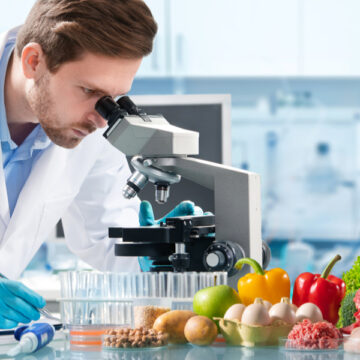Trends and Innovations
In a constantly evolving industry like the food sector, it is important to stay updated with the latest trends and developments. This applies not only to consumer trends but also to production processes and innovations in the supply chain.
Current Trends
One of the most notable trends recently is the valorization of by-products and waste streams. This means converting ‘waste products,’ which would normally be discarded, into valuable raw materials. However, this development goes beyond just reducing waste. There is an increasing focus on utilizing high-quality and functional ingredients, such as functional fibers, substitutes for chemical additives, and highly specific flavorings. This enables producers to create high-quality (plant-based) foods with a premium experience, offering flavorful and authentic tastes, even in plant-based products with meat- or fish-like flavors. In this way, the valorization of by-products contributes to both sustainability and the creation of innovative and tasty foods, promoting the circular economy.
Another trend is the rise of vegan products. Many animal ingredients, such as chicken protein and gelatin, are technically challenging to replicate from plants. However, the food industry has made remarkable breakthroughs in this area. Many startups are focused on developing plant-based alternatives that not only match the taste and texture of animal products but are also sustainable and ethically responsible. These developments are a source of inspiration and hope for both consumers and producers striving for a more plant-based future. We see increasing attention to the protein transition, where plant-based proteins are increasingly used to replace animal proteins. This is not only a more sustainable option but also responds to the growing consumer demand for plant-based products.
Energy Consumption and New Technologies
The vegan trend also puts constant pressure on sustainable production in the food industry, with energy consumption, water usage, and CO2 emissions taking center stage. Producers are striving for methods to use energy more efficiently, reduce water consumption, and reuse water in production processes. Moreover, efforts are being made to reduce CO2 emissions to minimize the ecological footprint of these vegan products, for example. These efforts contribute to a more sustainable, animal-friendly, and environmentally friendly future in the food industry. At Bodec, we are continually developing new technologies and processes to support these sustainability trends and contribute to a more sustainable future for the food industry.
Eye on the Future, Together with the Client
An interesting aspect of this is the focus on minimizing the impact on the end product. This can mean, for example, that if a certain crop, plant, or other raw material is introduced at the beginning of the production process, we aim for a mild processing method to retain as many of the original properties as possible.
At the same time, we look for ways to utilize all parts of a product. For instance, we have worked with a client to use not just the coffee beans but the entire plant. This ensures minimal waste and keeps us as high as possible in the chain, focusing on ‘food = food.’ It is important to emphasize that the client always remains responsible for their own business case. However, Bodec’s willingness and contribution to helping clients implement more sustainable and efficient processes is always present. As we look ahead, we at Bodec continue to closely monitor these trends and innovations so that we can keep supporting our clients in achieving their goals and ambitions in this dynamic and exciting industry.


